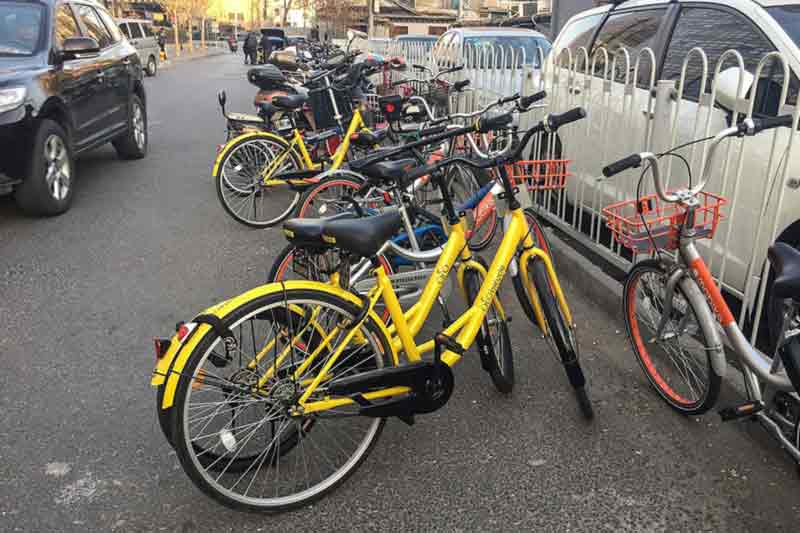
The Land Transport Authority (LTA), National Parks Board (NParks) and 16 Town Councils (TCs) have signed a Memorandum of Understanding (MoU) with the five bicycle-sharing operators (Obike, Ofo, Mobike, Gbikes, and SG Bike) in Singapore to encourage responsible operation of bicycle-sharing services in public spaces. The MoU lays out a set of mutually agreed guidelines to reduce disamenities arising from bicycle-sharing services and improve public safety.
Currently, bicycle-sharing operators are required by LTA to remove indiscriminately-parked shared bicycles within half a day. With the signing of the MoU, operators will take action to further reduce this occurrence by adopting geo-fencing technology before the end of this year.
Older bicycle sharing systems required users to return the bicycle to specific docks/ parking stations. But the new smart ‘dockless’ bicycle sharing apps allow users to park them anywhere. The next user can locate and unlock nearby bicycles using GPS features in the service provider’s app installed on their smartphone. This can lead to indiscriminate parking causing inconvenience for others.
Geo-fencing creates a virtual perimeter for a real-world geographic area and allows an administrator to set up triggers, so that when a device enters (or exits) the boundaries defined by the administrator, an alert is issued. Thus, geo-fencing would enable the operators to know whether their bicycles have been parked within designated bicycle parking zones, and take measures to prevent indiscriminate parking from happening.
All the operators have also agreed to share anonymised trip data with LTA, to facilitate the planning of active mobility infrastructure. Information of users will only be released to the relevant enforcement authority to facilitate investigation and enforcement work in the case of accidents resulting in injury, death or property damage.
To provide better services, the operators will also remove faulty bicycles within a day, and provide public liability insurance for users. The operators will also embark on an education campaign on safe riding and responsible parking. They have proactively taken concrete steps to do so by co-funding public education initiatives on safe riding and proper parking.
The MoU applies to the operation of other shared active mobility devices, such as shared personal mobility devices and power-assisted bicycles. LTA will continue to take strict enforcement action against indiscriminate parking, and consider stronger regulatory measures if bicycle-sharing operators do not operate responsibly.
To facilitate the parking of both privately-owned and shared bicycles, LTA, NParks, the 16 Town Councils and the bicycle-sharing operators have started to provide additional yellow bicycle parking boxes in HDB estates, parks, park connectors and at MRT stations and bus stops. More than 4,000 boxes, which can accommodate 20,000 bicycles, will be provided by end 2017.
Bicycle-sharing can help solve the “last-mile” problem in cities by connecting users to public transit networks. By providing an affordable alternative to motorised public transport or private vehicles, they also reduce traffic congestion, noise, and air pollution.
Featured image: Ofo and Mobike bicycles in China/ Credit: N509FZ/ CC BY-SA 4.0
















